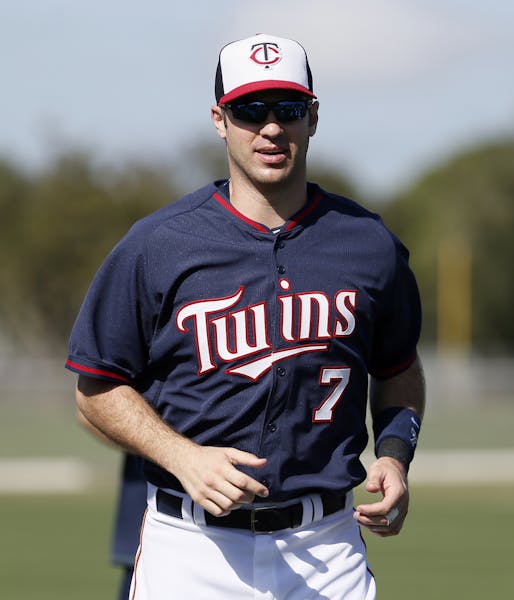Dallas Braden pitched five years in the majors, all with Oakland, before a shoulder injury in 2011 ultimately ended his career. These days, he's a baseball analyst for ESPN. With the season upon us, Braden took time to chat with the Star Tribune's Michael Rand.
Q From what you've seen prepping for the baseball season, who are teams with the potential to surprise like the Royals did last year?
A In the NL West, the Padres, with the upgrades to the lineup they've seen, are in that category. I feel like [starting pitcher] Tyson Ross, who is not only a friend of mine but a guy who had an All-Star year last year, has way more in there. He could be poised for a next-level sort of year. … Toronto, in the AL East, with the addition of Josh Donaldson that you can plug in between Mr. Joey Bats [Jose Bautista] and Edwin Encarnacion, those are what we call treacherous waters to navigate for a pitcher in the 3-4-5 spot.
Q From what you know of the Twins and their recent struggles, what are some keys to their season and potentially improving?
A They have in Kurt Suzuki a catcher I'm extremely partial to. He's a tremendous leader behind the plate. … He's definitely a guy who, if they can really tap into what he brings to the table from a studying aspect — because he was seriously the only other guy outside of myself in Oakland when we were teammates who spent that much time in the video room — he can give them the best chance to win day in and day out.
Q With Paul Molitor taking over as manager, I'm curious as to what you think of the impact a manager has on the clubhouse?
A It's huge. You're talking about the one guy who is supposed to have the ultimate pulse of the team in the clubhouse. He's the guy who can dictate the energy, for better or worse, in that clubhouse. Obviously Gardy being as well-respected as he is, you're definitely going to lose something and it's probably something you don't replace. But you bring a guy like Molitor in with his experience and his Hall of Fame credentials, and you're definitely gaining a few things. You're excited about what he's bringing to the table as far as day-in, day-out preparation at that Hall of Fame level.
Q There's a lot of talk about pace of play going into the season. Is it a problem in your mind?
A No. I mean, there are guys who are dubbed "human rain delays" and you know who those guys are. … It's not affecting you. … In a game, when there's a foul ball, guys are going to adjust their batting gloves, pitchers are going to kick the dirt and rub the ball a little, and they're going to play baseball the same way they have for 100-plus years.
Q You used to work pretty quickly — about 19 seconds between pitches for your career, faster than the average by a few seconds. Was that intentional?
A Absolutely. I understood that getting my name announced before the game was the loudest noise I was going to get all day. It was going to be quick. Either you were going to kick my butt or I was going to roll through you. That's having an understanding of what keeping the defense on its toes can do for you. … I needed all the defense I could get.

Rare and fatal brain disease in two deer hunters heightens concerns about CWD

Five home runs, including two by Julien, power Twins past White Sox
Yoshinobu Yamamoto's 6 shutout innings help Dodgers finish sweep, defeat Nats 2-1

